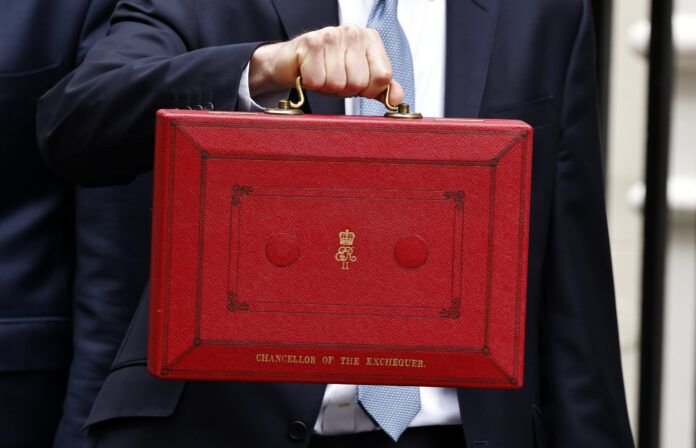The industry has responded to the 2024 Spring Budget announced yesterday [6 March] with disappointment due to lack of focus on the construction sector, with Chancellor Jeremy Hunt’s announcements criticised as “an exercise in clearing the decks before the General Election”.
Some key takeaways from the Budget were another national insurance tax cut to 8% from April, down from 10% in January, and the OBR forecasting that the economy is to grow by 0.8% in 2024, with growth then increasing to 1.9% and 2.0% in 2025 and 2026, respectively.
Additionally, the threshold for small businesses to register to pay VAT was increased from £85,000 to £90,000 from April.
Industry reaction
FMB
The Federation of Master Builders (FMB) has slammed the Budget, calling it a “missed opportunity to build”.
Brian Berry, chief executive of the FMB, said: “The Budget could have been an opportunity to kickstart the housing market with house building rates stagnant, but the Chancellor has done nothing. It was also disappointing there were no new measures to help homeowners improve the energy efficiency of their homes. This was an opportunity to reform the planning system, boost local authority planning teams’ capacities, and review the financial burdens the planning system places on smaller house builders, but again these much-needed reforms have been overlooked.”
He added: “The Chancellor could have helped to close the construction skills gap ensuring the UK has the workers with the green skills needed to retrofit the UK’s homes, and provided support to help small builders deal with the administrative burden of training apprentices. All these areas could have grown the economy, instead builders got left behind – this Budget was a missed opportunity.
“The Chancellor’s announcement to increase the VAT threshold for small businesses from £85,000 to £90,000 is welcome but the rate has been frozen for seven years so in real terms it makes little difference.”
BMF
John Newcomb, CEO of the Builders Merchants Federation (BMF), said: “The Chancellor has missed an opportunity to get Britain building again, with little of real consequence in a budget designed to buy short term electoral support rather than promote the long-term economic success of the country.
“Despite a steep decline in housebuilding over the past 12 months, there was no fresh, impetus to speed the building of new and affordable homes in areas where they are most needed, nor was there support for a vital national retrofit strategy – a key BMF ask of the Chancellor – that would improve the energy efficiency of our existing homes, generate new skilled jobs, and boost local growth throughout the country.
“The budget speech was an exercise in clearing the decks before the General Election. We cannot help but be disappointed at the lack of fresh impetus for our supply chain, given the economic and societal benefits of new house-building and improving existing homes.”
BCIS
Dr David Crosthwaite, chief economist of the BCIS, commented: “The Spring Budget has continued the trend of fiscal events being distinctly underwhelming for the construction industry. There was very little in it that would give confidence to investors or to firms who are operating in still very challenging conditions.
“The Chancellor says he has a plan for ‘sustainable, long-term growth’ but we’re simply not seeing evidence of that in the announced policies and investment.
“Despite construction being a key lever of economic growth via the multiplier effect, there was no increase in spending announced.
“The repeated commitments to housebuilding were limited to only certain areas and schemes and there remain many questions over how the government intends to increase efficiencies in the planning process.
“Likewise, the claim of investing in infrastructure is there, but still not enough detail following the cancellation of HS2 Phase 2 and promised ‘Network North’ plans.
“As part of the Spring Budget, the government also responded to a framework, recently set out by the head of the National Audit Office, to help deliver tens of billions of pounds of government savings.
“One of the National Audit Office’s key concerns on getting value for public money was around national infrastructure.
“In its response, the government describes the recently updated National Infrastructure and Construction Pipeline as a ‘critical document and dataset for industry, which provides more certainty and confidence in the future shape and scale of infrastructure work’.
“Unfortunately, the pipeline fails to do that in a number of ways, not least in its lack of clarity and less than convincing pledge to tackle skills shortages.
“Construction needs investment. We need more major projects to stimulate the economy and get Britain growing again.”




